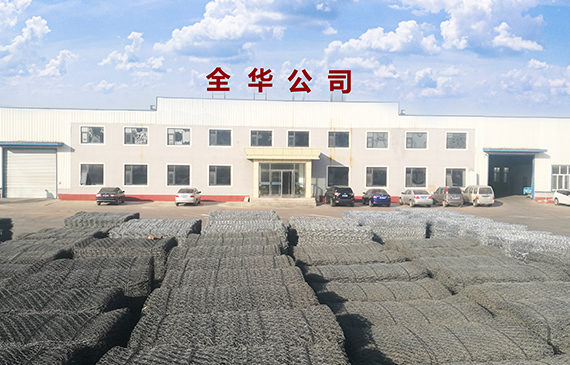ਨਵੰ. . 14, 2024 22:25 Back to list
wholesale gabion wall for erosion control
Wholesale Gabion Walls for Erosion Control A Sustainable Solution
In recent years, the effects of erosion caused by water and wind have become increasingly problematic for both urban and rural landscapes. The need for effective erosion control methods has never been more critical. Among the various solutions available, wholesale gabion walls have emerged as an attractive option for landowners, landscape architects, and civil engineers alike. This article explores the advantages of gabion walls in erosion control, their applications, and considerations when opting for wholesale solutions.
Gabion walls are structures made from wire mesh containers filled with rocks, stones, or other materials. Typically used along riverbanks, slopes, and shores, these walls provide a robust defense against the forces of nature that contribute to erosion. One of the major advantages of gabion walls is their permeability; since water can flow through the walls, they reduce pressure build-up behind the structure, thereby minimizing the risk of hydraulic failure. Additionally, as sediment is deposited in and around the gabions, the environment becomes reinforced over time, leading to improved ecological stability.
The ecological benefits of using gabion walls are considerable. Unlike traditional concrete barriers, gabions blend seamlessly into their surrounding environment, providing habitats for various wildlife species. Over time, the stones can become coated in moss and vegetation, allowing plants to take root. This not only enhances biodiversity but also contributes to the aesthetic value of the landscape. As a sustainable erosion control method, gabions allow for natural processes to occur, ultimately creating a healthier ecosystem.
When looking for wholesale gabion wall options, there are a few key factors to consider. Firstly, the material used for the wire mesh is crucial. Galvanized steel offers the best protection against corrosion, ensuring longevity and durability of the wall. Before making a purchase, it is advisable to check if the manufacturer uses high-quality materials that can withstand harsh weather conditions and prolonged exposure to moisture.
wholesale gabion wall for erosion control

Another factor to consider is the size and shape of the gabion units. Depending on the specific application and site requirements, gabion walls can be customized to various dimensions. It is essential to engage with suppliers who offer flexible wholesale options, allowing you to tailor your order to meet the precise needs of your project. This customization can lead to timely and efficient installation, improving overall project outcomes.
In addition to aesthetics and ecological benefits, gabion walls are cost-effective. Wholesale purchases can lead to significant savings, particularly for large projects. Reduced labor costs and minimal maintenance increase the financial advantages over time. Furthermore, gabions can be constructed rapidly, as they do not require extensive groundwork compared to traditional erosion control methods.
Finally, it is important to consider the regulatory guidelines associated with the installation of gabion walls. Depending on the location and the potential impact on surrounding ecosystems, there may be specific regulations you need to comply with. Working closely with local authorities, as well as professional engineers who specialize in erosion control, can help navigate these complexities.
In conclusion, wholesale gabion walls offer a sustainable, cost-effective, and aesthetically pleasing solution for erosion control. Their many advantages include ecological benefits, flexibility in design, and ease of installation. As awareness of the importance of sustainable engineering solutions continues to grow, gabion walls are likely to become an increasingly popular choice for those seeking effective measures against erosion. By investing in wholesale gabion systems, you can contribute to the health of our landscapes while protecting assets from the damaging effects of erosion.
-
Why PVC Coated Gabion Mattress Is the Best Solution for Long-Term Erosion Control
NewsMay.23,2025
-
Gabion Wire Mesh: The Reinforced Solution for Modern Construction and Landscape Design
NewsMay.23,2025
-
Gabion Wall: The Flexible, Seismic-Resistant Solution for Modern Landscaping and Construction
NewsMay.23,2025
-
Gabion Wall Solutions: The Durable, Decorative, and Affordable Choice for Every Landscape
NewsMay.23,2025
-
Gabion Basket: The Durable and Flexible Alternative to Traditional Retaining Walls
NewsMay.23,2025
-
Gabion Basket: The Proven Solution for Slope Stability and Flood Control
NewsMay.23,2025
-
Versatility of Chain Link Fence Gabion
NewsMay.13,2025






